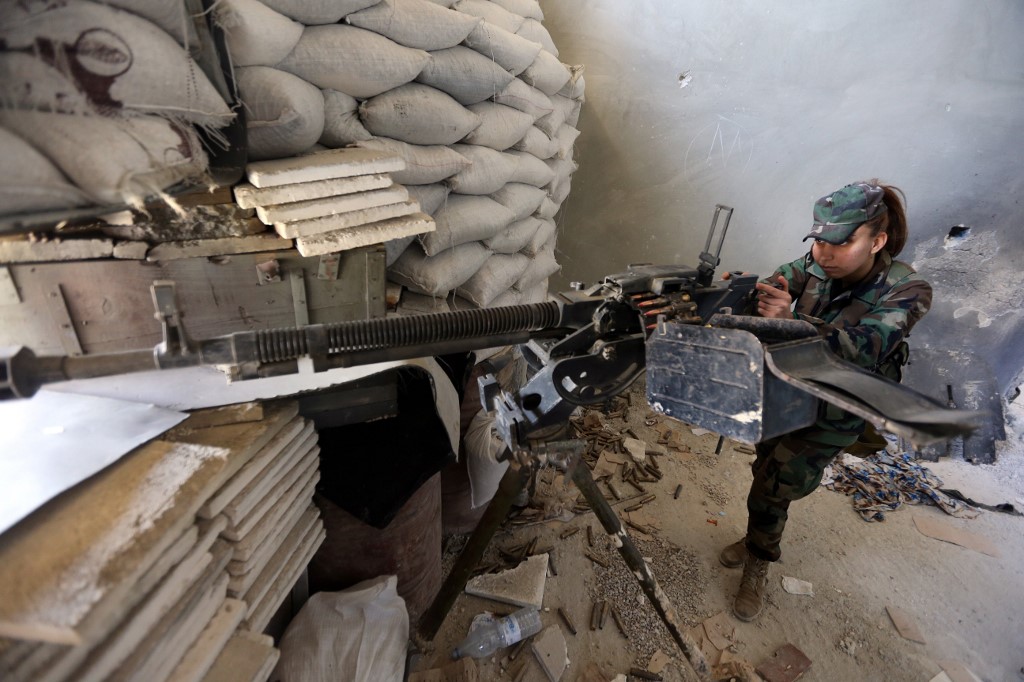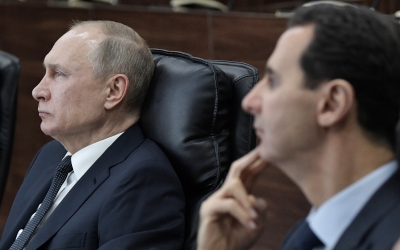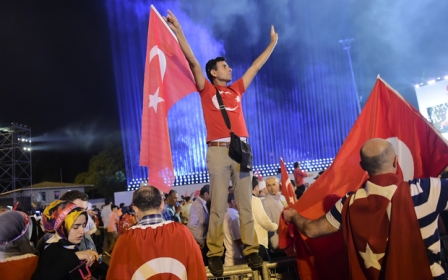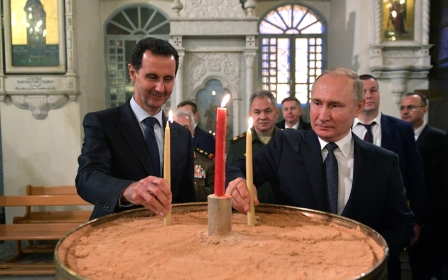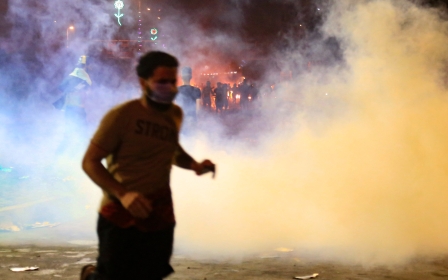Why some Middle East autocrats are harder to oust than others
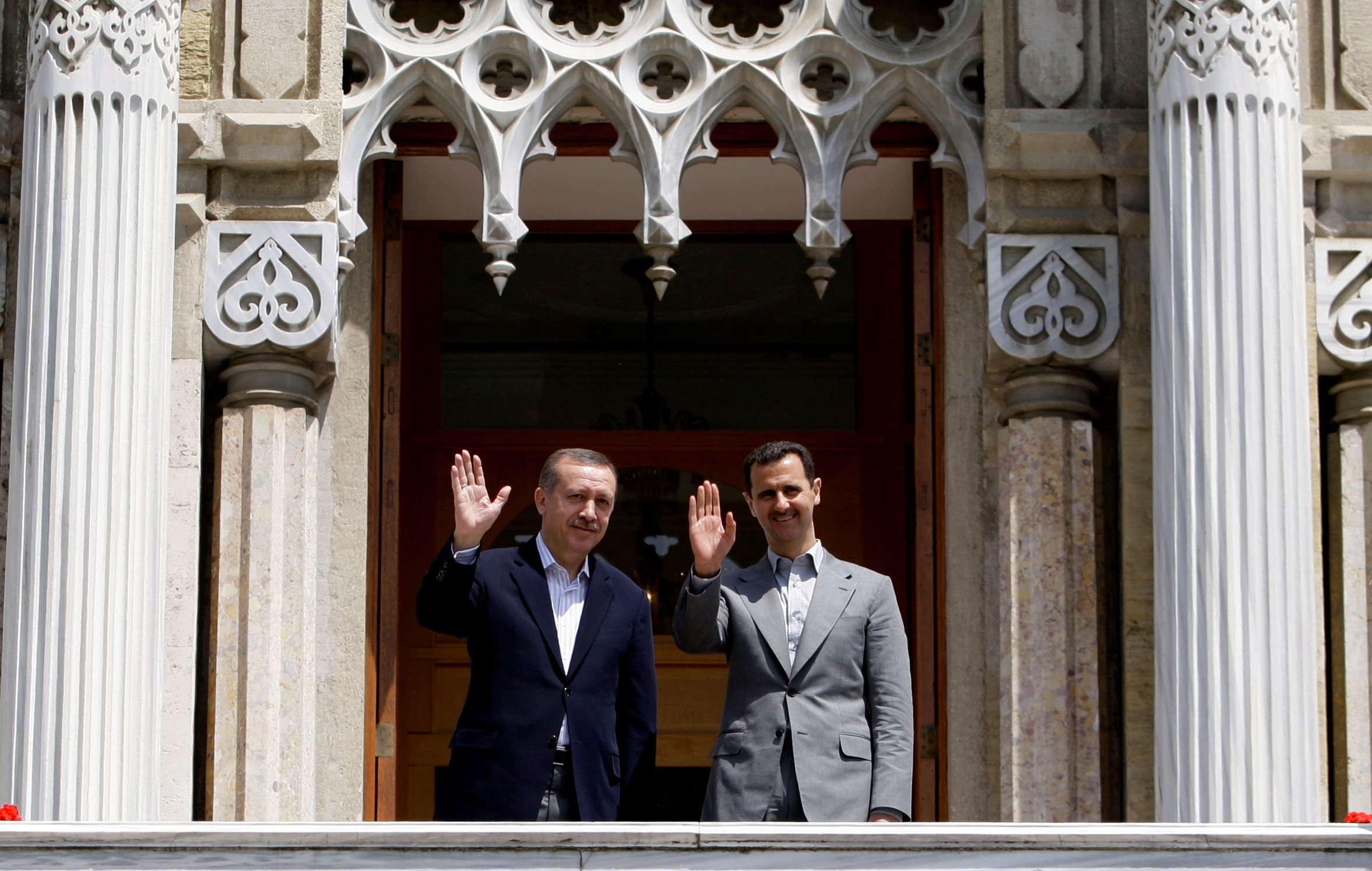
The political futures of both Syrian President Bashar al-Assad and Turkish President Recep Tayyip Erdogan have recently been the subject of speculation.
For Assad, a dispute with his wealthy cousin amid grumblings from his ally, Russia, has prompted some to wonder whether his bloody reign may soon end. For Erdogan, the fallout from the Covid-19 crisis and associated economic uncertainty has led to murmurs about his potential departure.
Yet, such speculation rarely outlines how these neighbouring strongmen would actually be toppled. Both rule over regimes, whether inherited (in Assad’s case) or created (in Erdogan’s), that make it difficult for rivals - from either within the ruling establishment or without - to overthrow them.
'Coup-proofing' the state
As is the case in many autocratic states, Assad and Erdogan have tried to “coup-proof” their regimes to ensure they can withstand far more dramatic setbacks than either currently faces.
New MEE newsletter: Jerusalem Dispatch
Sign up to get the latest insights and analysis on Israel-Palestine, alongside Turkey Unpacked and other MEE newsletters
Coup-proofing is, according to author James Quinlivan, “the set of actions a regime takes to prevent a military coup”. This is more common in states such as Turkey and Syria, where there is a history of military intervention in politics.
Even if Russia wanted to topple Assad ... the regime is engineered in such a way to make it very difficult
The methods vary from state to state, but Quinlivan notes similarities in the coup-proofing of Saudi Arabia, Syria and Saddam Hussein’s Iraq. Standout methods include packing key security positions with those tied to the ruler by family, ethnicity or religion; building up armed forces parallel to the regular military; and developing multiple overlapping internal security agencies monitoring the military and one another to prevent coups.
Assad inherited a regime that his father had coup-proofed par excellence. The extent of successful coup-proofing was seen when he avoided any serious attempt by establishment insiders to topple him, despite losing more than half of the country at one point during the recent civil war.
Though thousands of soldiers defected and joined the opposition, those in key security positions, mostly from his own Alawi sect and family, stayed loyal. Similarly, the key security divisions fighting rebels in the early stages of the conflict were the “parallel structures”: the Republican Guard and the 4th Armoured Division, armed with the best equipment to defend the regime.
Though it is unknown whether there were attempts at coups - there were several rumours - their absence suggests the myriad security agencies Syria had on the eve of the war proved effective.
Parallel security structures
The absence of a coup against Assad during the conflict casts doubt on claims that disputes with his cousin, Rami Makhlouf, or Russia will prompt one now. In the unlikely event of a military challenge, Makhlouf could theoretically win over some Alawis and members of the extended Assad-Makhlouf family, but not the key parallel military structures or intelligence agencies loyal to the regime.
The same happened when Assad’s uncle tried to outmanoeuvre his father, Hafez, in 1984; key security agencies and institutions remained loyal to the president.
Others have speculated that Russia, frustrated with Assad’s foot-dragging on a new constitution that could open the way for international investment, may turn against their ally. Yet, for all Russia’s influence, it is only one player among several in Syria’s complex coup-proofed regime.
As well as having to negotiate the various overlapping intelligence and security services, only some of which are close to Moscow, it must also deal with Assad’s other key allies, Iran and Hezbollah. Even if Russia wanted to topple Assad - and such rumours are more likely aimed at nudging Assad to make concessions, rather than serious thoughts of a coup - the regime is engineered in such a way to make it very difficult for Moscow.
Mubarak and Morsi
By way of contrast, not all autocratic regimes are so coup-proofed. A good example is former President Hosni Mubarak’s Egypt. While Mubarak led a fearsome regime, with extensive intelligence agencies not unlike Syria’s, he did not build up parallel military structures or pack key security positions with loyalists based on family, ethnic or religious ties.
Instead, he allowed the military, from which he and his predecessors had emerged, to remain by far the most powerful security (and economic) actor in Egypt.
When protests erupted in 2011, unlike in Syria, the military was a single united body, sufficiently separate from the president that it could overthrow him in a coup to protect its privileged position. The same happened in 2013, as the military overthrew the democratically elected government of former President Mohamed Morsi.
Erdogan’s regime in Turkey, by contrast, is somewhere in between. Unlike Assad and his father, Erdogan won power through the ballot box and only belatedly took an authoritarian turn.
With Turkey’s military having launched four successful coups against elected governments since the Second World War, and attempting another against Erdogan in 2016, the Turkish leader’s desire to coup-proof is understandable. Since 2016, he has purged not only the military, but large swathes of the judiciary, police, journalism and academia of potential opponents.
Work in progress
Erdogan’s coup-proofing, however, is only partial. He has packed the military with loyalists, but not built up parallel structures, as Hafez al-Assad did. Similarly, though he is idealistic and has put some family members in powerful political positions, he has not leaned on religious and/or ethnic ties to populate key security positions.
And while he is increasingly intolerant of public criticism and opposition, he is for now permitting challenges via elections, albeit ones in which pro-government media dominate. Even so, local elections did recently see his party lose control of Turkey’s two largest cities.
Bashar al-Assad's regime may be robust, but its security forces have been willing to burn Syria to the ground rather than turn on their leader
For Erdogan, then, coup-proofing is a work in progress, and it is unclear how far he intends to go. On the one hand, he may opt to fully mimic Hafez al-Assad, turning elections into controlled showpieces and preventing internal threats by developing multiple overlapping security agencies loyal to him.
Alternatively, he may end up like Mubarak, presuming his purges of the military have been successful until a domestic crisis sees them turn on him. His neighbour to the south is a potential model, but also a warning. Bashar al-Assad’s regime may be robust, but its security forces have been willing to burn Syria to the ground rather than turn on their leader. Coup-proofing comes at a cost.
The views expressed in this article belong to the author and do not necessarily reflect the editorial policy of Middle East Eye.
Middle East Eye delivers independent and unrivalled coverage and analysis of the Middle East, North Africa and beyond. To learn more about republishing this content and the associated fees, please fill out this form. More about MEE can be found here.



